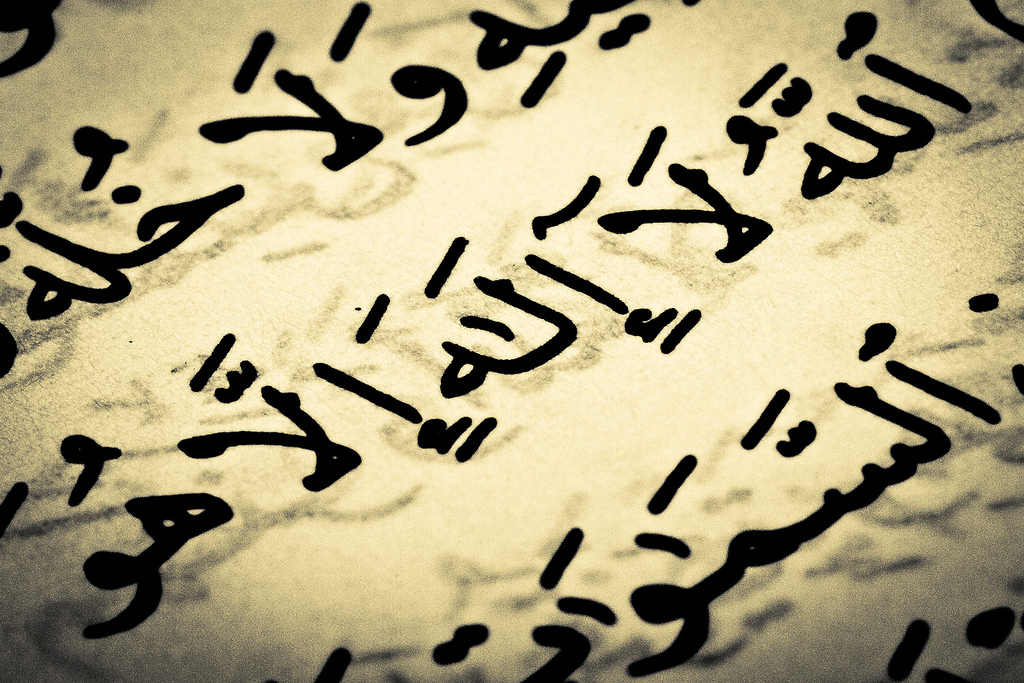Wrongly interpreting idribu to mean “beat” instead of “go away” has turned at least two realities that the Qur’an has given women into myths. The reality is that a husband who wants to divorce his wife cannot hold her back by injuring her, and this protects a wife who wants to be set free. The Qur’an gives her this right to not be injured.
What jurists claim is that the “beating” is only given to a wife whose nushuz the husband fears. The jurists explain nushuz as “disobedience” whereas I see the word to mean “resistance.” As a matter of fact, nushuz does not mean “obedience” as that is a completely different word in the Quran.
Using “resistance“ for nushuz, we see while in 4:34 the Qur’an says: “husbands who fear resistance on the part of their wives,” in 4:128 the Qur’an says: wives who fear “resistance” or nushuz on the part of their husbands. In truly a fair and just fashion as the Qur’an always is, however we translate the word in regard to a wife, must be translated and interpreted the same for a husband. If nushuz is interpreted as meaning disobedient then it must apply in both cases, a disobedient wife and/or a disobedient husband.
Here is another example from the Qur’an as to why the word idribu in 4:34 does not mean to beat: According to 24:6-9, if a husband accuses his wife of adultery without any witnesses except himself, the husband swears an oath by God four times that he is one who is sincere. He then swears a fifth oath that God’s curse be on him if he is the one who lies. The wife does the same thing. She swears by God four times that he is one who lies.
The wife then swears a fifth oath that the anger of God be upon her if he be one who is sincere. With this fifth oath on the part of a wife, all punishment is driven away from her. God and humanity accepts her word and so must the jurists.
And notice the fine nuance in the Qur’anic language between what the husband must swear an oath to: the curse of God be upon him if he lies and yet the wife must swear an oath that the anger of God be upon her if her husband is sincere. This shows the great respect God’s revelation through the blessed Prophet and the Qur’an has for womanhood.
For example, let us now imagine the same situation as we did with 4:34. Before a wife has a chance to take advantage of her right given in the Qur’an in 24:6-9, her husband accuses her of adultery without witnesses other than himself and beats her. She becomes a victim, perhaps ending up in a shelter. Now, a victim, she no longer has the will to defend herself and instead assumes that she is in the wrong and deserves to be beaten even when she has done nothing wrong.
Wrongly interpreting idribu to mean “beat” instead of “go away” has turned at least two realities that the Qur’an has given women into myths. The reality is that a husband who wants to divorce his wife cannot hold her back by injuring her, and this protects a wife who wants to be set free. The Qur’an gives her this right to not be injured. When idribu is interpreted as “beat”, this reality becomes a myth.
24:6-9 allows a wife who is accused of adultery by her husband without any witnesses other than himself to defend herself against the accusation, and God and humanity accepts her defense. Yet because of misinterpretation of 4:34, because of not following the Sira and behavior of the Prophet, the best model for humanity, a reality is turned into a myth for a wife.
In addition, in both cases of the use of the word idribu interpreted as meaning beat, Muslim translators and interpreters are commanding to munkar and prohibiting ma’ruf, commanding to immorality and prohibiting morality – the definition of a hypocrite in 9:67. They are making asking for a divorce to be preferred because she cannot be harmed over remaining married because remaining married is under the threat of being beaten.
I have been asked, “How can you go against the tradition and over 1400 years of commentary?” My response is that if we study Islamic history, after the time of the Rushidin, the 4 Rightly Guided Caliphs, we Muslims have had 1400 years of almost uninterrupted rulership by tyrants and dictators with the exception of a few years of a pious ruler. Does that mean that we cannot go against tradition and demand pious, benevolent rulers? No. Of course not. The response is that the minute that each individual member of the ummah gains consciousness of a wrong being done in the name of God, in the name of Islam, he or she has the responsibility.
(For previous installations to this series, please see Part I and Part II)
Laleh Bakhtiar, Ph. D., educated in classical Arabic, lecturer on Islam at the University of Chicago (Lutheran School of Theology), is the first American woman to translate the Qur’an into English. It is called the Sublime Qur’an.
Photo Credit: Mohd Althan





2 Comments